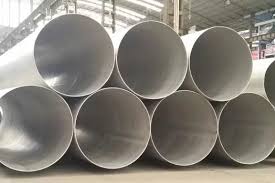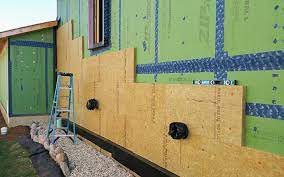A 1031 exchange is a tax-deferred exchange that lets you defer capital gains taxation on the sale of the investment house by reinvesting the purchase cash into a related property. But, the 1031 exchange approach is sophisticated and requires careful planning and setup. One of the essential aspects of a successful 1031 exchange is using a qualified intermediary (QI). In this post, we shall explore just how a qualified intermediary facilitates a 1031 exchange and why it is essential to ensure a smooth and certified purchase.
1. What is a Qualified Intermediary?
A qualified intermediary is really a next-bash business that facilitates a 1031 exchange upreit companies by keeping the proceeds through the sale of the relinquished residence and making use of those cash to purchase a like-kind home. The IRS demands a QI simply because they cannot possess romantic relationship with either the purchaser or perhaps the retailer. The QI guarantees the money are stored separate from the taxpayer’s profiles until these are reinvested in a new home.
2. Position of the Qualified Intermediary
A QI takes on an important role within a 1031 exchange mainly because they behave as an intermediary involving the shopper and seller. They prepare the 1031 exchange files, facilitate the selling from the relinquished property, and ensure that the retailer is not going to get some of the exchange earnings. The QI can also help recognize substitute qualities, carry out due diligence, and put together the shutting down documentation for the purchase of the latest property.
3. Advantages of choosing a Qualified Intermediary
There are various good things about using a QI to get a 1031 exchange. Firstly, a QI makes certain that the exchange is in accordance with IRS suggestions. They already have the expertise to execute due diligence on the relinquished and replacing components, making sure that they satisfy the 1031 exchange criteria. Next, a QI can help identify perfect replacement properties, saving the tax payer time and money. Finally, employing a QI allows taxpayers to pay attention to their current business and private pursuits while not being concerned concerning the transaction’s intricacies.
4. Disadvantages of Not Using a Qualified Intermediary
If a property owner chooses not to use a QI inside a 1031 exchange, they are considered as using constructive invoice of the purchase earnings, generating the financial transaction not any longer tax-deferred. With out a QI, the tax payer is mainly responsible for discovering the replacing home within 45 days and nights, and there is not any assure the owner will not likely obtain the proceeds ahead of the closing with a new house. By using a QI is regarded as the trustworthy and established method to guarantee an effective 1031 exchange.
5. Deciding on the best Qualified Intermediary
Selecting the best QI is crucial to make certain a successful and certified 1031 exchange. Our recommendation is that taxpayers study and assess QIs to get the right one for them. Think about their experience, area, and costs to produce an informed determination. Look for a QI which has efficient their processes, includes a established history of successful exchanges, and it has obvious conversation and openness.
In a nutshell:
In summary, a qualified intermediary performs a crucial role in assisting a 1031 exchange. They ensure that the transaction complies with Internal revenue service rules, is great for the homework approach, determines probable substitute attributes, and prepares the required paperwork for the purchase from the relinquished property and purchasing the like-form house. Whether you’re the first-time shopper or have performed multiple 1031 swaps, employing a qualified intermediary is the simplest way to make sure an effortless and profitable purchase. Make sure you study and assess QIs to find the best for you.



